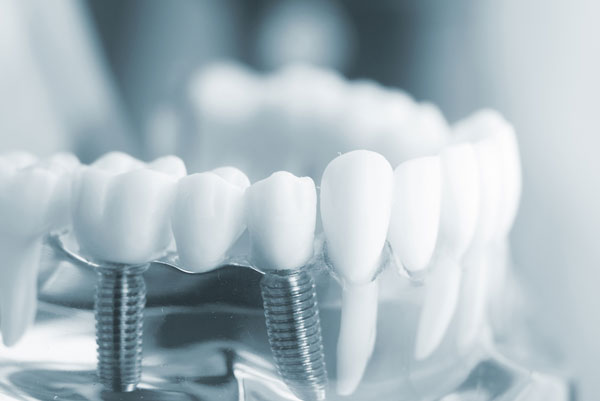Surgery – Implantology

In oral surgery, there are situations in which, due to difficult circumstances, procedures should be evaluated and performed by specialists.
What are included teeth?
They are teeth that by bone and dental anatomical characteristics can never erupt. Unlike the sessile teeth may be teeth in the anterior region of the oral cavity and are not negligible, if possible your surgery is intended to provide the orthodontist with a way to pull and expose it in the oral cavity, only in case of very unfavorable conditions if it is extracted.

Implantology
The absence of dental pieces will cause changes in the functioning of the stomatognathic system, some of them are besides harmful, irreversible, be at the dental muscle level, causing joint and functional problems. It is thus urgent to replace these parts, whether multiple or single. Implants are indicated to replace these absences, are placed in the areas of lost dental roots, through a surgical procedure and will promote the retention or mechanical fixation of several types of prosthesis-partial or total, fixed or removable.
Book now an appointment near you!
We will respond in a moment.
“The smile is the shortest distance between two people.”
Frequently asked questions
What are cysts?
Often remaining lesions of dental or non-dental infections may be very pathogenic to the oral cavity; if not removed, they may be harmful to the surrounding bone, increasing in size and destroying surrounding tissues. They should be removed surgically.
What are wisdom teeth included?
The last teeth to erupt, usually between the ages of 17 and 20, are 4, 2 upper and 2 lower. Due to bone and dental anatomical characteristics, they can never erupt and thus may be involved, causing problems, pain, pericoronitis (inflammation of the gingiva), excessive pressure on adjacent teeth and caries. In these cases they should be extracted using a different surgery in which osteotomy (bone cutting) is usually used because they are found inside the alveolar bone.
What care should I take after a surgical procedure?
1. During the first 12 hours after surgery, apply ice to the affected area for 15 minutes, every hour.
2. Do not brush the sutured areas (“stitches”). You should clean the area operated with swabs soaked in recommended mouthwash (elixir). Brush normally the remaining teeth.
3. It is normal for you to feel anesthesia and inflammation in the affected areas after the anesthesia, which will be more pronounced in the first 48 hours after surgery, starting to disappear on the 3rd or 4th day.
4. You should sleep with your head slightly higher than normal and rest.
5. If you feel pain you should continue with the medication and if the pain gets stronger contact your dentist.
6. After surgery a slight blood taste may persist in the operated area.
To prevent bleeding you should:
– Keep the compress for 30 minutes, doing compression;
– Keep your head up and avoid sudden movements;
– Avoid spitting or sucking so as not to cause further bleeding;
“If you persist for a long time, call the clinic.”
7. On the day of surgery, it is recommended to eat soft and cold foods and drink fresh liquids to improve the postoperative period.
8. Do not smoke after surgery as it can impair the postoperative and lead to infections.
9. Return to the clinic 1 week later to remove the suture.


